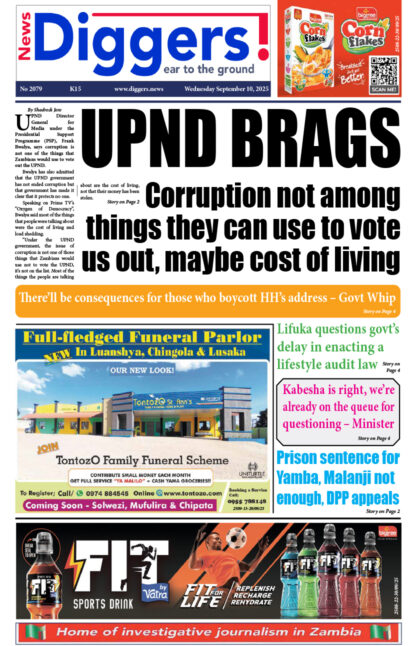If you heard that a country had no law that made it an offence to be in possession of human body parts, would that not shock you? After all, the assumption would be that those parts were obtained due to an offence like murder, assault or grave-robbing. At law, it could even be argued that those body parts would form circumstantial evidence of a crime. However, in Zambia this is not an offence.
While it may appear trivial to some, for persons with albinism this is another example of how they are unprotected. In Zambia, persons with albinism are attacked and kidnapped because certain members of society ascribe to ignorant beliefs and myths such as the use of persons with albinism in rituals. It is because of this that there is constant threat on their lives which prevents them from living freely. This threat not only stifles their right to life but also restricts their freedom of movement.
In 2017, Disability Rights Watch reported that there are over 25,000 persons with albinism in Zambia. Despite being estimated to be more than 25,000 people, there has been no intervention at legislative or policy level to ensure that there are measures to ensure their safety especially considering that face a specific threat. Additionally, there is an absence of measures to facilitate the full enjoyment of their rights, freedoms and lives considering these harmful myths and beliefs.
The lack of such a particular law to protect persons with albinism elucidates the way in which they are being failed by the various systems in the country. In addition to the multiple challenges already faced such as discrimination1, difficulties accessing the sunscreen necessary to reduce their risks of skin cancer, making accommodations for their inclusion in education and employment spaces; their lives are not protected by law especially given the circumstances. Thus, creating a trickle-down effect in the way violence against persons with albinism matters are treated. Arising from such failures, a man in Western Province, whose story is the focus of this article, is now facing persecution for reporting an intended abduction of a person with albinism.
Mr. X2 lent his phone to his brother-in-law only to find a strange recording on it when it was returned to him. His cellular device inadvertently recorded his brother-in-law and two other men in conversation to abduct a person with albinism at a specified location and time. Upon hearing this, Mr. X reported this matter to the police station and played the recording for their actioning. The suspects were apprehended and brought in for questioning. Mr. X requested that the police maintain his anonymity during the identification of the suspects given that he was closely connected to one of them. Unfortunately, this process took place in full view of the suspects and without protection for Mr. X…the beginning of the challenges he faces now.
According to Mr. X, the police did not go to the place at the time mentioned to establish whether the abduction took place and later released the suspects. These suspects and the person who initiated the proposed abduction now pose a threat to Mr. X’s life. Over two years later, despite his engagement with authorities like the Zambia Police Service and the Police Public Complaints Commission over the stalled investigation, nothing has been done about Mr. X’s lack of protection during the identification parade and harassment faced following his report. He continues to fear for his safety and suffers psychological distress as a result.
Mr. X’s situation highlights a myriad of issues such as the lack of protections for persons with albinism, the absence of an effective witness protection for whistleblowers and the failure of law enforcement to carry out their statutory obligations set out in Article 193 (2) of the Constitution which includes to investigate cases reported to it. It is imperative that the legislature exercise it function by creating a law that provides for the protection of the lives and rights of persons with albinism in Zambia. The rights and freedoms afforded in the Bill of Rights do not exclude persons with albinism. As Zambian citizens and persons within the Zambian jurisdiction they too must be protected by the Constitution.
This story has been shared to raise awareness on the need for whistleblower protections and give a glimpse into systemic failures that do not protect persons with albinism from violence against them. Mr. X played his role as a citizen by reporting this case to law enforcement but was met with circumstances that have put his life at risk. If you can assist by contributing to his logistics and security, please email us at [email protected]. This support can go a long way to ensure that Mr. X does not continue to suffer for having done what was right.
Chapter One Foundation Limited promotes and protects human rights, human rights defenders, constitutionalism, social justice, and the rule of law in Zambia, primarily through strategic litigation, advocacy, and capacity building. Our aim is to promote and protect the Constitution and the rights included in it and by so doing contribute to a democratic dispensation in which citizens can freely participate in the democratic governance of their country.





